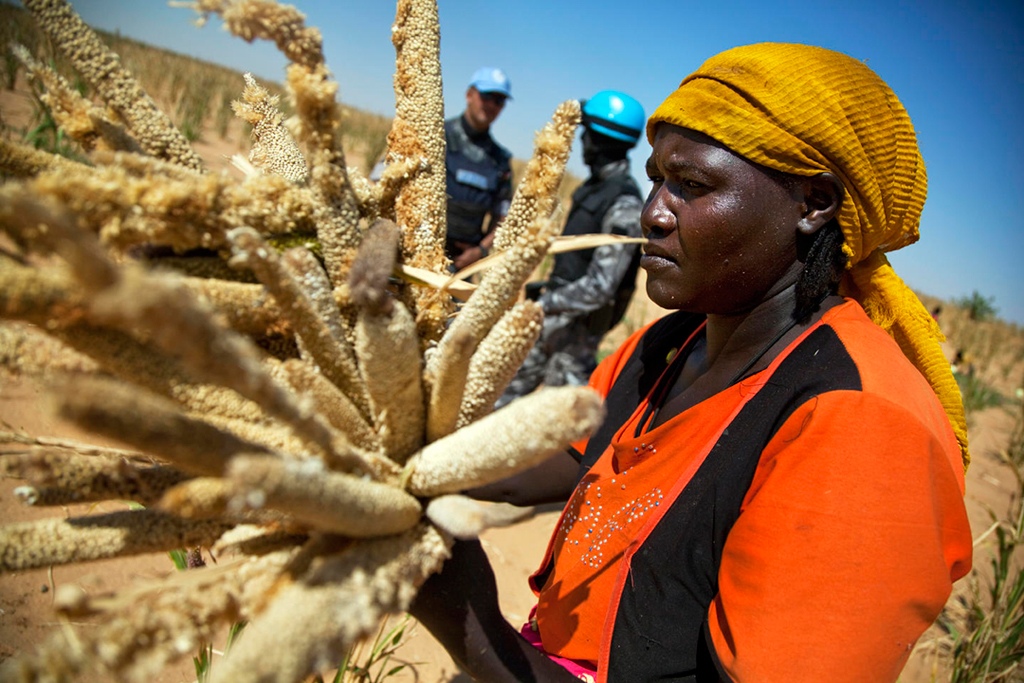How to study conflictology in the worst conditions imaginable
Is it possible to study for a master's degree during a bombing raid? The experience of the 120 volunteers, soldiers, and technicians of the United Nations and other international agencies who have passed through the classrooms of the UOC, and are assigned to peacekeeping operations, confirm that it is. Since 2013, the UOC and the United Nations Institute for Training and Research (UNITAR) have trained military personnel deployed in humanitarian missions throughout the world in conflict management. Last Friday, the two institutions met to assess the joint work.
The International Master's Degree in Conflictology, offered by UNITAR and the UOC's Faculty of Law and Political Science has enabled UN recruits and international civil servants to be trained. Over these three years of institutional alliance, students have combined studies with fieldwork in the worst conditions: in war zones and humanitarian tragedies.
Online training offers the flexibility in time management needed by the technicians and soldiers involved in humanitarian disasters. Ismael Peña, Director of Conflictology programmes at the UOC, explains the importance of online learning for this kind of student: "It is a unique opportunity because they live day to day, following refugee convoys or, literally, taking cover from bombs and other armed attacks".
For Peña, online training makes the "unthinkable" possible for those who live abroad and move periodically for reasons of work: constant access to the campus, educational resources, professors and class companions.
Good academic results
The faculty of the International Master's Degree in Conflictology has to bear in mind the everyday circumstances of the students, both personal and work, as they are usually harsh. However, Maria-Antònia Guardiola, coordinator of the educational programme, emphasises that the general trend of participating in and contributing to the course is notable and that two thirds of the students enrolled usually pass the subjects, activities and projects they must study in 60 credits.
According to the professor, "the UOC method guarantees academic results, that tasks are carried out well and that the knowledge acquired is applied in the workplace". "From the first semester, we recommend that students put their research work into practice in a real setting," says Guardiola.
The final degree project is usually related to the students' destination. According to data provided by Guardiola, last semester students undertook studies on national sovereignty of Kosovo, the Afghanistan conflict or the emergence of radical Islamic groups in the Syrian war, among others, and they designed and implemented a peace intervention in Libya.
The master's degree qualifies the soldiers in subjects such as the philosophy of peace, peacebuilding, crisis management, intercultural conflicts and management of diversity, family mediation, and non-violence.
Understanding professors
Despite the students' firm motivation, a third of them do not access the classroom during the course. Being soldiers or officers of UN peacekeeping forces in conflict zones means that the faculty is more sensitive to and understanding of the lack of participation.
Students usually justify their absence for several reasons: because they have a sick relative in a remote area in their country of origin, because of the loss of electricity supply when on mission and because of deficient or non-existent internet connections, sickness or an unexpected work mission.
The number of students has increased since the first joint master's degree. In the meeting held on 17 and 18 March, UNITAR expressed its desire to the UOC to expand the number of enrolments on the next course and to find new channels of collaboration.
Press contact
-
Editorial department
